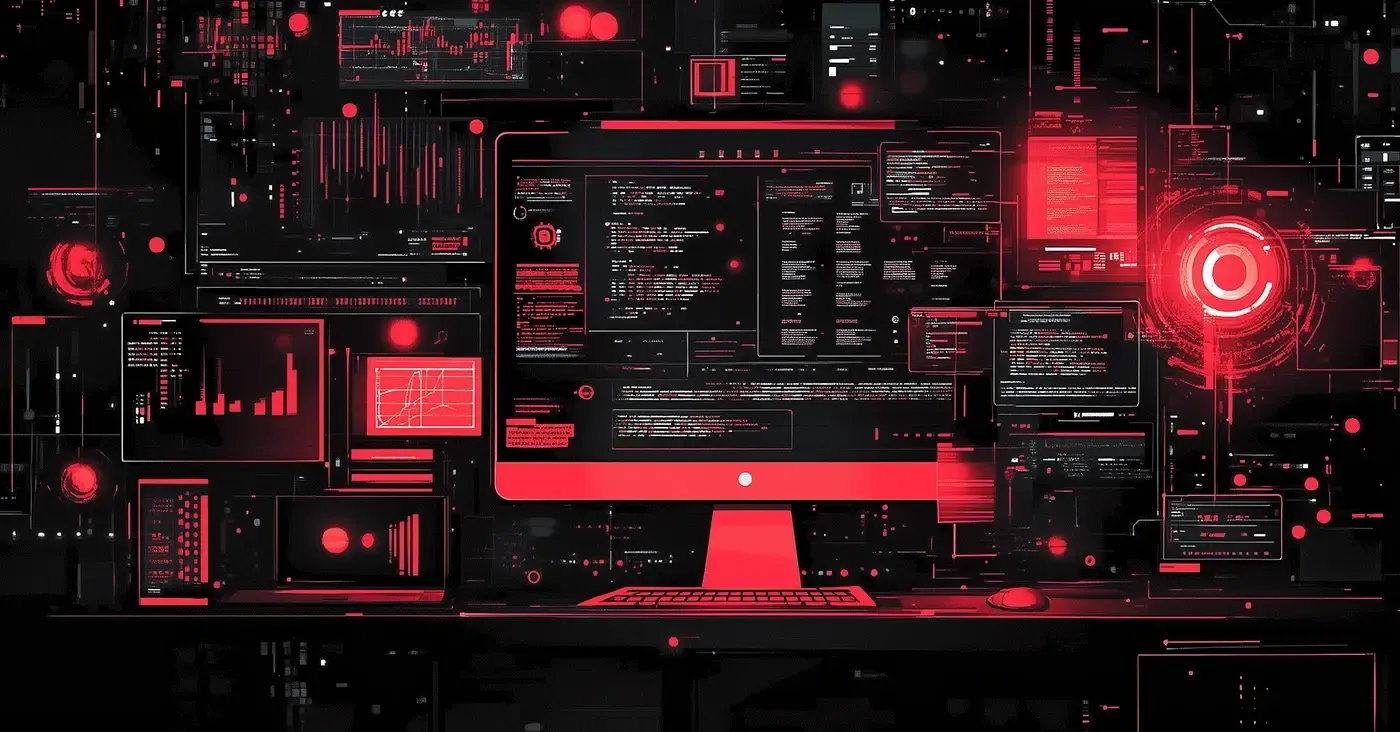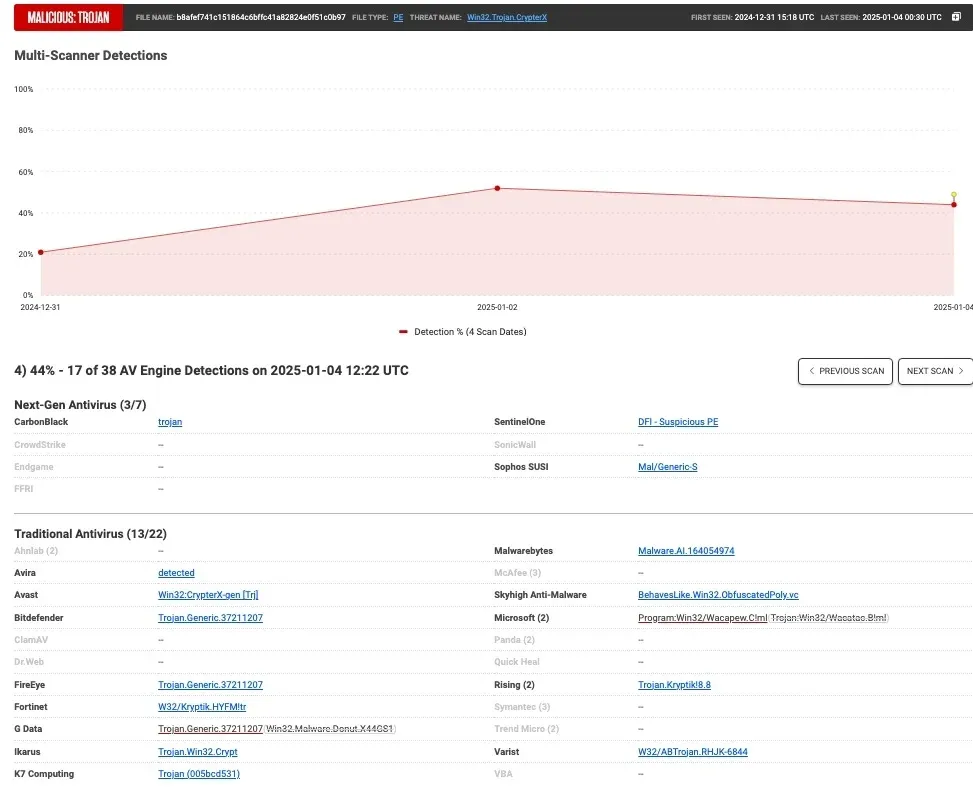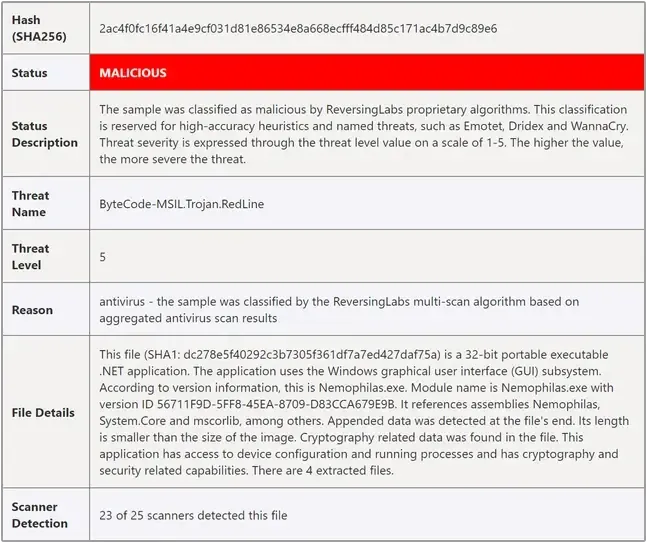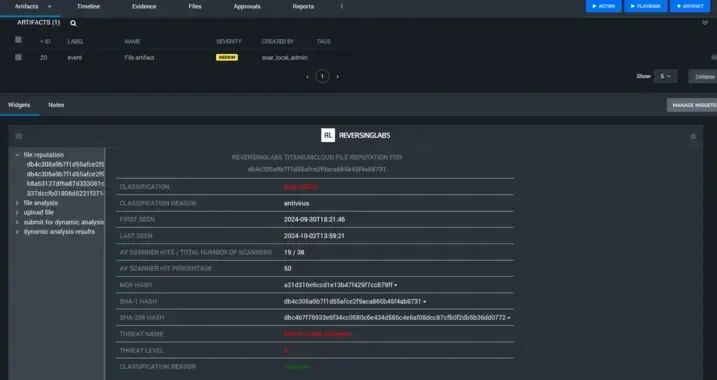Spectra Assure Free Trial
Get your 14-day free trial of Spectra Assure
Get Free TrialMore about Spectra Assure Free Trial
Multi-scanning anti-virus, also known simply as multi-scanning, uses multiple anti-malware or antivirus engines concurrently to scan for threats. This approach enhances malware detection and improves overall cybersecurity.
Here are three reasons you should consider multi-scanning, key considerations for your security team when implementing such an approach — and how ReversingLabs’s multi-scanning delivers best-of-class performance.
The primary advantage of multi-scanning is its ability to increase malware detection rates significantly:
For example, while a single antivirus engine might have a detection rate of around 98%, combining multiple engines can push this rate much higher, potentially reducing the risk of infection to near-zero levels.
Multi-scanning can more efficiently identify malware outbreaks by consolidating virus definition database updates from multiple sources. This approach reduces the time of exposure to new malware, potentially bringing it down to less than 10 minutes when using more than 20 anti-malware engines.
This diverse approach is particularly effective against complex viruses, including polymorphic and zero-day threats that might evade traditional, single-engine solutions.
While multi-scanning offers significant benefits, it's essential to consider some potential drawbacks:
In conclusion, multi-scanning anti-virus can provide a robust layer of protection against a wide range of malware threats, especially in high-risk enterprise environments processing large amounts of data. However, it's crucial to balance the improved detection rates with the potential increase in false positives and system resource usage. For many organizations, the enhanced security offered by multi-scanning outweighs these considerations, making it an increasingly popular choice in comprehensive cybersecurity strategies.

Figure 1: Multi-Scanner Results Detail of Malicious File Hash in ReversingLabs Spectra Analyze
ReversingLabs employs multi-scanning techniques to provide comprehensive and accurate threat detection in their file reputation solutions. Here's how they utilize this approach:
ReversingLabs analyzes executables using over 40 scanning engines. This multi-engine approach allows for a broader perspective on all possible types of malware, as different engines may detect different threats.
In addition to multiple scanning engines, ReversingLabs combines various analysis methods:
This multi-faceted approach enables more thorough threat detection and classification.
ReversingLabs' Spectra Intelligence serves as a curated file intelligence database, which is considered an authoritative source for both goodware (whitelist) and malware (blacklist) information. This database is built using:

Figure 2: Malicious File Verdict based on ReversingLabs Mulit-Scanner results in Microsoft Sentinel.
ReversingLabs incorporates AI-driven complex binary analysis that allows for high-volume, high-speed file analysis to inspect and classify files and objects fully in seconds.
The multi-scanning approach allows ReversingLabs to:
By leveraging this multi-scanning approach, ReversingLabs can offer more accurate and comprehensive file reputation services, reducing false positives and improving the detection of unknown malware.

Figure 3: Malicious File Verdict of ReversingLabs Multi-Scanning Results in Splunk SOAR
Multi-scanning anti-virus technology represents a significant advancement in cybersecurity, offering a robust defense against the ever-evolving landscape of digital threats. By leveraging multiple scanning engines and diverse analysis techniques, this approach addresses the limitations of single-engine solutions and provides a more comprehensive shield against malware.
ReversingLabs exemplifies the power of multi-scanning in practice, demonstrating how this technology can be effectively implemented to create a formidable file reputation solution. Its use of more than 40 scanning engines, combined with AI-driven analysis and a vast file intelligence database, showcases the potential of multi-scanning to significantly enhance threat detection capabilities.
While multi-scanning does come with considerations such as increased resource usage and potential false positives, its benefits often outweigh these challenges, especially in high-risk environments. As cyber threats continue to grow in sophistication, multi-scanning anti-virus solutions are likely to play an increasingly crucial role in comprehensive cybersecurity strategies.
For organizations, adopting multi-scanning technology could be a game-changing step toward achieving a more secure digital presence. As we move forward in an increasingly connected world, the layered protection offered by multi-scanning may become an essential component of our digital defense arsenal.
ReversingLabs is the trusted name in file and software security. We provide a modern cybersecurity platform to verify and deliver safe binaries. Trusted by the Fortune 500 and leading cybersecurity vendors, the ReversingLabs Spectra Core powers the software supply chain and file security insights, tracking more than 40 billion searchable files daily with the ability to deconstruct full software binaries in seconds to minutes. Only ReversingLabs provides that final exam to determine whether a single file or full software binary presents a risk to your organization and your customers.
Explore RL's Spectra suite: Spectra Assure for software supply chain security, Spectra Detect for scalable file analysis, Spectra Analyze for malware analysis and threat hunting, and Spectra Intelligence for reputation data and intelligence.
Get your 14-day free trial of Spectra Assure
Get Free TrialMore about Spectra Assure Free Trial